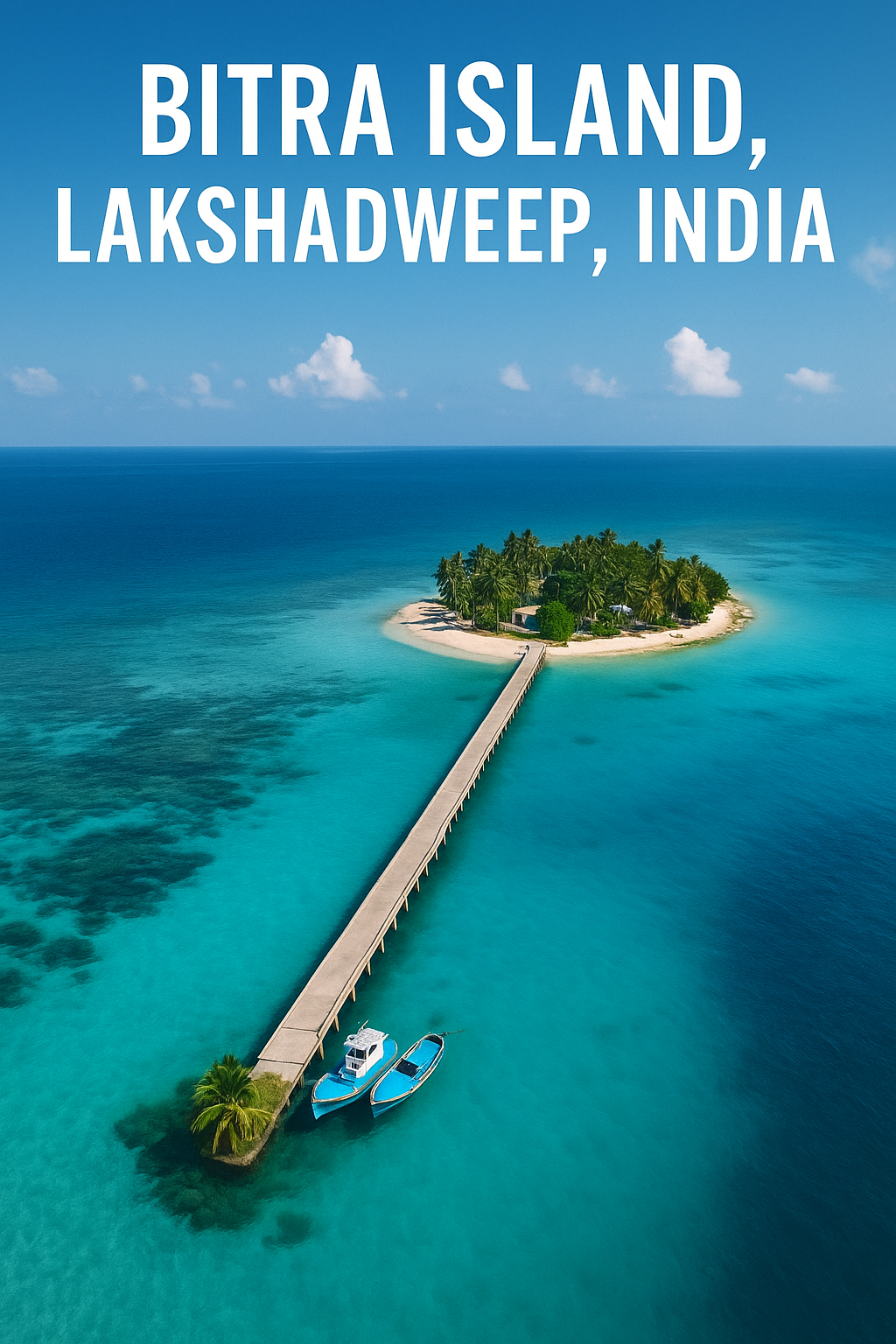
The tiny island of Bitra in India’s Lakshadweep, home to just 350 people, is now at the heart of a growing battle between local residents and the administration. The government wants to acquire this island for defence and strategic purposes, but the people of Bitra fear they will lose their homes, livelihoods and way of life. As the news spreads, so does the anxiety among islanders who depend on fishing and coconut cultivation for survival.
Bitra is not just a dot on the map. It is a community. Children go to school here, families visit the small health centre for treatment, and everyone works together to make a living from the sea and land. But now, that life is under threat. A notification issued on July 11 by the Lakshadweep revenue department says the government wants to take over the island, citing its strategic location and national security reasons. However, the people of Bitra say they were never consulted.
“We live on a private island. If this is not resolved, we will challenge it in court,” said one worried resident. Others echoed the same. “If there is any move to displace people, we will fight it legally,” said another. The residents say that if they are forced to leave, it will destroy their way of life, which has existed for generations. Their connection to the island is not just physical. It is emotional and cultural.
Fishing is not just a job for these islanders. It is their tradition, their identity and their daily bread. They catch tuna and groupers in the lagoon waters surrounding Bitra. If they are removed from the island, they will lose access to these waters. Their coconut plantations will also be lost, and that means their source of food, shelter and trade will vanish. The residents are afraid they will be left with nothing.
Adding to their worries is the lack of communication from the administration. There was no public meeting, no consultation and no explanation given to the locals before the notice was issued. “How can they decide our future without asking us?” asked one fisherman. The islanders feel ignored and disrespected. They say this is not just about land but about people’s lives.
The notification also mentioned that the land was being taken under the “Pandaram” land order, which means the government already has ownership. However, the residents say they have “proprietary rights,” and taking their land without fair notice or compensation goes against the law.
According to local reports, some infrastructure work has already begun on Bitra. A teacher told the press that construction had started without informing the people. Local Member of Parliament Mohammed Hamdulla Sayeed said that the government has full control, but that does not mean it can ignore the people. “Bitra is the largest lagoon in Lakshadweep,” he said. “You cannot take it away just like that. This will be challenged legally and politically.”
For many in India’s Lakshadweep islands, Bitra is not just another location. It is one of the few places where communities still live close to nature, away from the noise of the modern world. People live simply but with dignity. They have built their homes with love, raised families and shaped a unique culture.
The government says the island’s location is important for defence, especially because it lies near deep-sea channels used for global shipping. But residents say that national interest should not come at the cost of local lives. There has to be a better way, one that protects both security and people.
The situation has caught the attention of activists and lawmakers who believe the rights of these islanders must be protected. According to Indian law, any such land acquisition must go through a proper environmental impact assessment and follow the Right to Fair Compensation and Transparency in Land Acquisition Act. But the residents say that none of this is being followed properly.
Bitra’s story is not just about land. It is about people, fishermen, women, children and elders who are all scared of losing their home. It is about a community that is asking to be heard. “We are not against development,” one elder said. “But it must include us, not erase us.”
As the matter is expected to reach court, Bitra stands as a symbol of a larger issue. How far can development go before it starts hurting the people it is meant to protect? The answer, the islanders believe, lies not in bulldozers or defence plans, but in dialogue, respect and fairness.
Bitra waits. Not just for a legal outcome, but for a sign that their voices matter.





















